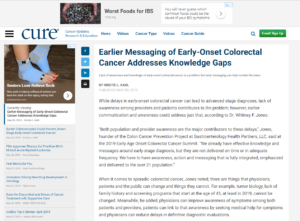Dr. Whitney Jones was recently featured in a Cure article about the lack of awareness among providers and patients of early-onset colorectal cancer.
Early-onset colorectal cancer affects those younger than 50 years of age. While many don’t think about getting screened for colon cancer until the age of 50, the rates of colorectal cancer in young and middle-aged adults have increased and are predicted to continue to increase. This is due to many factors, including unhealthy lifestyle behaviors, one’s family history and a lack of awareness.
While colorectal cancer is known as a silent and even painless killer, symptoms can include:
- Blood present in the stool
- Change in bowel habits (diarrhea, constipation, or consistency)
- Loss of weight
- Nausea or vomiting
- Fatigue
If you have a family history of cancer or polyps, it is urged that you speak to a health care professional about getting screened early. Lifestyle factors that can lead to colorectal cancer include obesity, tobacco use, excessive alcohol consumption, lack of exercise, as well as a diet high in red processed meat and low in fresh fruits or vegetables.
According to Dr. Jones, those with a higher sense of awareness tend to be diagnosed at an earlier stage when the cancer is more treatable. Conversely, studies have shown that those with stage 3 and 4 colorectal cancers are among patients that experienced a prolonged diagnostic delay. Therefore, it is recommended that one seek medical help for symptoms right away. While one often delays speaking to a doctor due to embarrassment, this time period is even more prolonged when one factors in the time gap of seeing a primary care physician and then a specialist. “Unless you are aware, you can’t link that to an action, such as being screened, preventing early, behavioral changes,” Jones explained.





